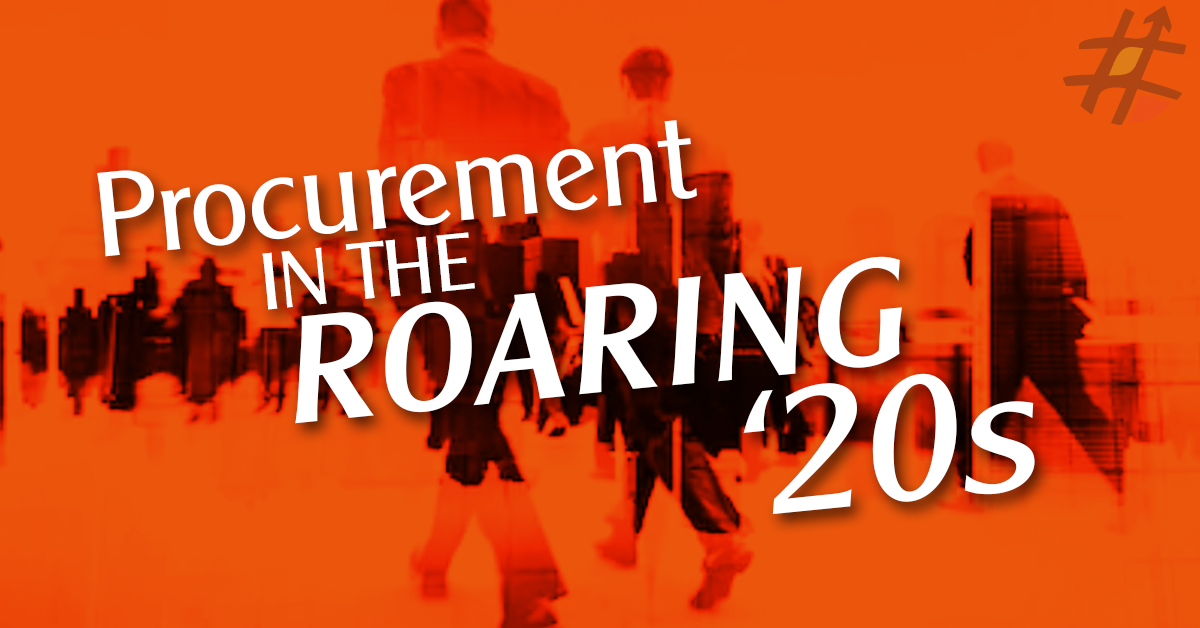
“May you live in interesting times”.
A blessing or a curse? Perhaps that’s something to be determined in hindsight but, right now, it’s looking like 2020 will be an interesting year. At least. It has certainly started on fire, with significant parts of Australia in flames. At multiple fire fronts, people are undertaking herculean acts of supply chain management as they try to keep firefighters supplied, volunteers fed and watered, and calculate the complex logistics of evacuation.
As the fires subside, more procurement challenges present themselves as rebuilding and resettlement become priorities. Some towns will bounce back; others will not. Procurement professionals will have work regardless because, as we know, life is nothing but a series of procurement hurdles.
And those hurdles in 2020 will be focused on reskilling; our continual education and training has never been more important. Surveys indicate that 70% of executives think current employees lack required tech skills, and 94% of employees would stay longer at a company if they were offered opportunities to learn and develop skills.
What about 2020 is making new skills so desirable?
Procurement AI will become as ubiquitous as computer chips
Twenty years ago, you’d struggle to name all the electrical appliances in your home, such was their number. Today, it’s a similar story with computer chips. Washing machines, microwaves, toasters, that watch on your wrist – all now functioning with the help of microprocessors.
2020 will be the year of AI, or artificial intelligence. Alongside it, machine learning, predictive analytics, robotic proves automation (RPA) and blockchain will cease to be buzzwords thrown around to appear knowledgeable and ahead of the game – often without understanding what they even mean – and simply become a part of everyday operations. In all likelihood, in the next few years, if not this year, “we use AI” will no longer be a selling point as it becomes a standard part of procurement technology.
Supply chains will become more automated, in part due to demographic shifts occurring right now. According to the International Labour Organisation, the global working-age population is anticipated to grow at a much slower pace over the next decade. In 2020, we will most likely see this slow growth noticeably hasten the adaptation of automation up and down the supply chain.
Data-driven organisations are winning the race
Coal spurred the Industrial revolution. The Age of Oil followed, growing not only on the back of fuel but all the myriad petrochemical by-products, such as plastics, fertilisers and solvents. Now comes the time of data, which is fuelling a lot of innovation and playing an increasingly pivotal role in our society and culture. However, just as coal and oil had their downsides, so too must we deal with new problems that arise within a data-driven world.
As procurement grows more dependent on data, the issues with data will spring to the forefront. Where did you get the data upon which you are basing your procurement decisions? Have you tracked your data lineage and thus kept records of your data’s provenance? How do you know how complete your data is? How do you know if it’s corrupted?
The great appeal of data is its supposed objectivity. It’s easy to believe that data doesn’t lie. Except it does. Data can be misinterpreted and misappropriated. Garbage in, garbage out is the reality of computation. If your data is bad, there is no AI-powered spend analysis sophisticated enough to stop you from making the wrong decisions.
But you can’t exist without it. Statistically, data-driven organisations perform better than those foregoing data decision making.
As we move into the roaring ‘20s, we need to make sure we address the concerns around data integrity to ensure this decade isn’t followed by another great depression.
Re-skilling is the theme
Sometimes clichés sum it up best. Times have changed. We can no longer shuffle through our careers with blinkers on. No doubt, we all to varying degrees find comfort in conformity and routine; we work best on predictable timetables. The comfort of the corporate ladder, a one company employee pulling down 30 to 40 hours a week, retiring at 60. Similar to one club AFL players, those days are gone, particularly for procurement professionals.
We cannot, as individuals or organisations, afford to be comfortable and complacent any longer. We must always be actively managing our careers, with a stronger focus than ever on continual education and training.
Comprara is part of a wider organisation that includes Skills Gap Analysis, Academy of Procurement and PI Data Analytics. Years ago, we recognised the ever-changing nature of the procurement industry, and the unrelenting pressure for those within it to keep their skills and knowledge up to date. If you’re in doubt, or unsure your company or your individual skills are at the bleeding edge, that’s good. You should doubt, you should wonder.
At Comprara, you’ll discover the reality. We analyse organisations, teams and individuals and provide detailed reports on where you are, where you need to be, and how to get there.
2020 will be the year of data-driven decision making, and you can’t afford to be left behind. If you want to be a leader, get in touch with the experts at PI Data Analytics, and take advantage of our cutting edge data analytics.
Contact us now, and turn 2020 into the year of seized opportunity.
Get Procurement Insights That Matter
Join 10,000+ procurement professionals getting monthly expert cost-optimisation strategies and exclusive resources. Unsubscribe anytime.
Join








